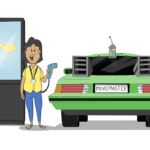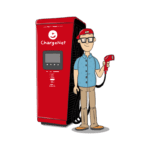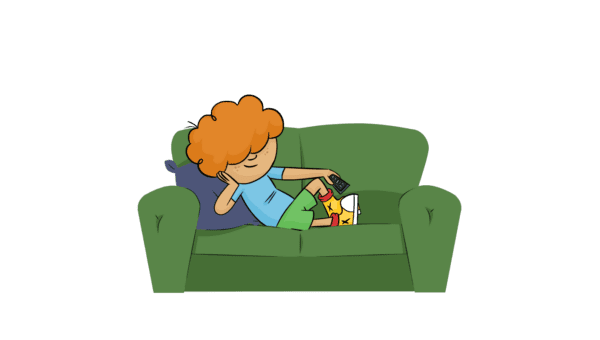All of our energy plans come with solar buyback rates, the best of which belongs to our MoveMaster plan. We think this deal is perfect for solar customers because you can use
the power you generate at home during the day, then benefit from our cheap off-peak and half price rates overnight (11pm to 7am) when the sun goes down. But whichever plan you go with, here’s a quick guide to help you get the best value from your solar investment.
So what is solar energy?
Solar energy is generated by the sun. This energy is captured and turned into usable electricity to help power your fridge, washing machine, computer, TV and anything else. Solar power is amazing because it gives individual
households the opportunity to use genuinely renewable energy at home, even if you still have to rely on the power grid at times.
Solar panels are made of conductive materials. The panels absorb sunlight with photovoltaic cells which create direct current (DC) electricity. Through an inverter the DC energy is then converted to usable alternating current (AC) energy. AC energy flows through the home’s electrical panel and is distributed accordingly.

The benefits of solar clearly outweigh the negatives, as long as you can afford the initial upfront cost.
Should you get solar?
Installing solar should be thought of as an investment rather than something that guarantees savings overnight. It’s an investment in your future energy bills, as well as in your property given that having solar could increase the value of your home. You should definitely go into it with a good idea of how much your solar system will cost, how much it will reduce your power bills, and how long it will take before you see a return on your investment.
In the right circumstances – and with the right power plan – it’s possible to drastically reduce your bills with solar. Here are a few steps to run through when considering solar in the first place:
- Size up your roof and the direction the solar panels will be facing. The pitch of your roof is a crucial detail when considering solar panels. A qualified solar installer can help you with this.
- Shop around for the best solar installation deal and ensure that you’re getting the right size system for< your property. The largest system might sound appealing but may not prove the most economic choice in the long run.
- Look into your electricity options. All our plans are solar friendly, and our MoveMaster plan has an awesome buyback rate, but it’s always important to look around.
The installation and setup of a solar system is a large investment, but the payoff can be high. You can also significantly reduce your personal carbon output with solar.
Is solar worth it? How long until I get a return?
The price of solar panels in New Zealand has decreased significantly in the last five years, making it a much more affordable option for homeowners. Rooftop solar is a smart choice for virtually any Kiwi home with an unshaded roof and some daytime power usage. The payback for most solar systems is between three to seven years, but this depends on several factors including available sunlight, panel position, electricity prices, the cost of the system and the amount of self-consumption.
Self-consumption is the key to getting the most out of a solar system these days. This means using as much of the electricity produced by your panels as possible. Self-consuming solar energy helps avoid purchasing energy from the grid. It’s even better if you have a battery to store any unused power for later use. Here’s our guide to using your battery as effectively as possible.
Are solar panels difficult to maintain?
Solar panels are usually not difficult to maintain as they’re designed for the outdoors and made to withstand any type of weather. However, they will need an annual clean to ensure that dirt, leaves and animal droppings aren’t obstructing the effectiveness of them.
What about when it’s rainy or cloudy?
Solar panels need unobstructed access to the sun’s UV rays to work at an optimum level. Therefore, solar panels will still generate electricity on overcast, rainy days – it’s just a little more limited than it would be on sunny days. You can check Solcast.com to see what the typical solar radiation is for New Zealand in your area.
To solar or not to solar?
The benefits of solar clearly outweigh the negatives, as long as you can afford the initial upfront cost, which can be significant. If you own a home you intend to live in or keep for many years, it’s almost a no-brainer. But if you’re not sure how long you will stay, it may not be worth it.
There is, of course, the added bonus of contributing to the green energy transition. By powering your home directly from the sun as much as you can, you’ll be less reliant on the power grid and therefore helping to reduce the need
for dirty power generation. Ultimately though, it’s a personal decision and dependent on your budget. Good luck with it!














